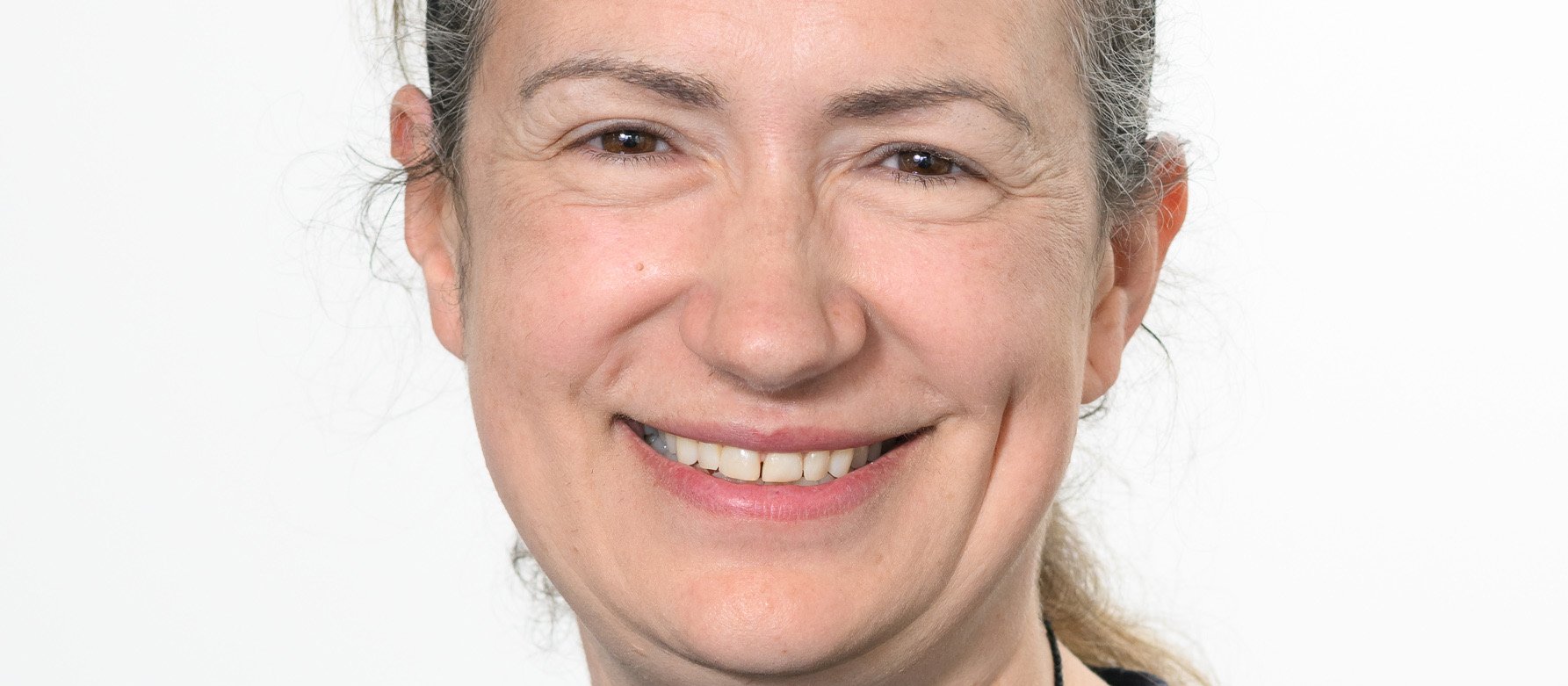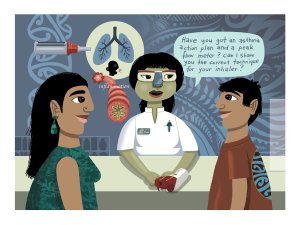Academic pharmacist Nataly Martini discusses the medical management of asthma in adults and adolescents, which has evolved to prioritise early anti-inflammatory treatment. She also explains how to improve patient outcomes by proactively identifying poor asthma control and supporting equitable access to education and treatment
Braund to lead Waikato pharmacy school
Braund to lead Waikato pharmacy school

The numbers of pharmacy students have been going down; to have an alternative approach to educate pharmacists is quite exciting for people
Rhiannon Braund says it was an exciting opportunity that she couldn’t say no to. The University of Otago professor has agreed to lead the University of Waikato’s new postgraduate pharmacy school, which is scheduled to open in February next year, provided it’s approved.
Professor Braund, who works at the New Zealand Pharmacovigilance Centre, will be stepping down as president of the Pharmaceutical Society, a role she’s held since November 2020. She says there are too many conflicts of interest which could make things messy: “I think I could manage them but it’s not the right thing to do.”
University of Waikato Te Huataki Waiora School of Health dean Jo Lane says the school is going through a “positive restructure” because it is growing rapidly, so Professor Braund’s position hasn’t been officially created yet. However, Professor Lane says Professor Braund will be the director of pharmacy, which means she’ll be head of the new pharmacy school.
The pharmacy school plans to offer a two-year graduate-entry Master of Pharmacy Practice and has two application processes under way, which Professor Braund will help with.
The school has applied to the Committee on University Academic Programmes to get the degree recognised as a master’s degree and to the Pharmacy Council for accreditation.
There have been a few meetings with the council and staff are working on a self-assessment document, which they aim to submit in March.
Professor Lane is “delighted” to appoint someone of Professor Braund’s calibre: “I think she is going to bring a lot to the programme.”
He describes her as a “distinguished” pharmacy educator, with a long track record in that area. Professor Braund won the Prime Minister’s Supreme Award for Excellence in Tertiary Teaching in 2012.
She was made a Fellow of the Pharmaceutical Society in 2018, and in 2020 she became the first female pharmacist to reach the rank of professor at the University of Otago.
Professor Lane says it helps that Professor Braund has been involved in a lot of pharmacy governance roles. He says it’s fantastic she has such a deep connection with and understanding of the sector.
Some of Professor Braund’s research has focused on access and equity to medicines, which Professor Lane says is a key focus of the School of Health. Her research aligns well with the university’s projects on topics such as access to diabetes medicines.
One of her key tasks will be building the team that will deliver the programme. Professor Braund is enthusiastic about the task: “Hiring will be the exciting part.” A few people at the university are already working on it and there’s also a lot of interest from outside, she says.
Professor Lane says there has also been very strong interest from students wanting to enrol in the course, “which is fantastic”, but they can’t sign up until the programme is approved.
“The numbers of pharmacy students have been going down; to have an alternative approach to educate pharmacists is quite exciting for people,” he says.
In most cases, students will need a bachelor’s degree with a major in one of the molecular sciences, including chemistry, biochemistry, molecular biology, pharmacology, or biomedical science.
The idea of doing a two-year postgraduate course is personally important to Professor Braund because she had to do a full pharmacy degree, even though she already had a Bachelor of Science in biochemistry. She says science graduates often wonder what they should do next and there are not a lot of job opportunities in science, apart from going down the academic route.
Professor Braund has been looking into the concept of a shorter pharmacy course since she saw it working so well in the UK and Australia when she was associate dean at Otago. It didn’t fit with the university’s model at the time, then she moved to the Pharmacovigilance Centre.
“It will be nice to get to revive it and have the opportunity to shape something that’s going to be really awesome,” she says.
The postgraduate course “really resonates with people”, adds Professor Braund. Focuses will include primary care, rural and multidisciplinary teams and connection with the community.
Pharmacists from Waikato and other areas were asking for the degree and Professor Lane has been “thoughtful” in developing it, says Professor Braund. There has been a lot of engagement with the sector and the course has been built in a collaborative way.
“We have to do things in a different way to ensure we get high-quality pharmacists,” she says.
“The course is going to add incredible value to the profession and to healthcare as well.”
Professor Lane is also excited about the new course and pleased to be part of it: “There have been so many negative stories about healthcare, it is nice to be part of the solution to some of those problems.”
Professor Braund says the University of Waikato campus has “a good vibe” because of the nursing and midwifery courses and the “ongoing conversation” about a new medical school.
“There’s so much opportunity and it’s an extremely nice campus to be part of,” she says.
Due to notice requirements at the University of Otago, Professor Braund will start her new role at the University of Waikato in May. She plans to work remotely this year then will move to Waikato early next year.
The target for the initial intake to the Master of Pharmacy Practice in 2025 is 30 students, with the intention of increasing that to 50 the following year.





